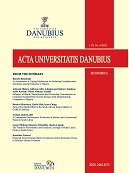Financial Sector - Foreign Direct Investment-Carbon Emissions Nexus in Selected African Countries
Financial Sector - Foreign Direct Investment-Carbon Emissions Nexus in Selected African Countries
Author(s): Kunofiwa TsauraiSubject(s): Business Economy / Management, Energy and Environmental Studies, Transformation Period (1990 - 2010), Present Times (2010 - today), Financial Markets
Published by: Editura Universitară Danubius
Keywords: Financial Sector; Foreign Direct Investment; Panel Data; Selected African Countries;
Summary/Abstract: Using dynamic generalized methods of moments (GMM), pooled ordinary least squares(OLS), fixed effects and random effects with panel data ranging from 2005 to 2018, this study had two main objectives. Firstly, to investigate the impact of financial development and or foreign direct investment on carbon emissions in selected African countries. Secondly, explore the influence of the complementarity between financial development and foreign direct investment on carbon emissions in selected African countries. Financial development was found to have had positively and significantly influenced carbon emissions in selected African countries under the dynamic GMM only. Foreign direct investment’s impact on carbon emissions was observed to be negative and significant also under the dynamic GMM approach. Across all the four econometric methods used in this study, the complementarity between financial development and foreign direct investment had a significant negative influence on carbon emissions in selected African countries. African countries need to ensure that its financial sector avails loans and financial resources towards promoting the use of clean energy and acquisition of new efficient technology that emits less carbon dioxide. They also need to implement policies which attracts foreign investors which are environmentally friendly in their day to day manufacturing and industrial activities. Further studies need to investigate threshold levels above which financial development begins to significantly increase carbon emissions in selected African countries. Future studies can also examine the threshold levels above which foreign direct investment begins to significantly reduce carbon emissions in selected African countries.
Journal: Acta Universitatis Danubius. Œconomica
- Issue Year: 17/2021
- Issue No: 6
- Page Range: 131-146
- Page Count: 16
- Language: English

